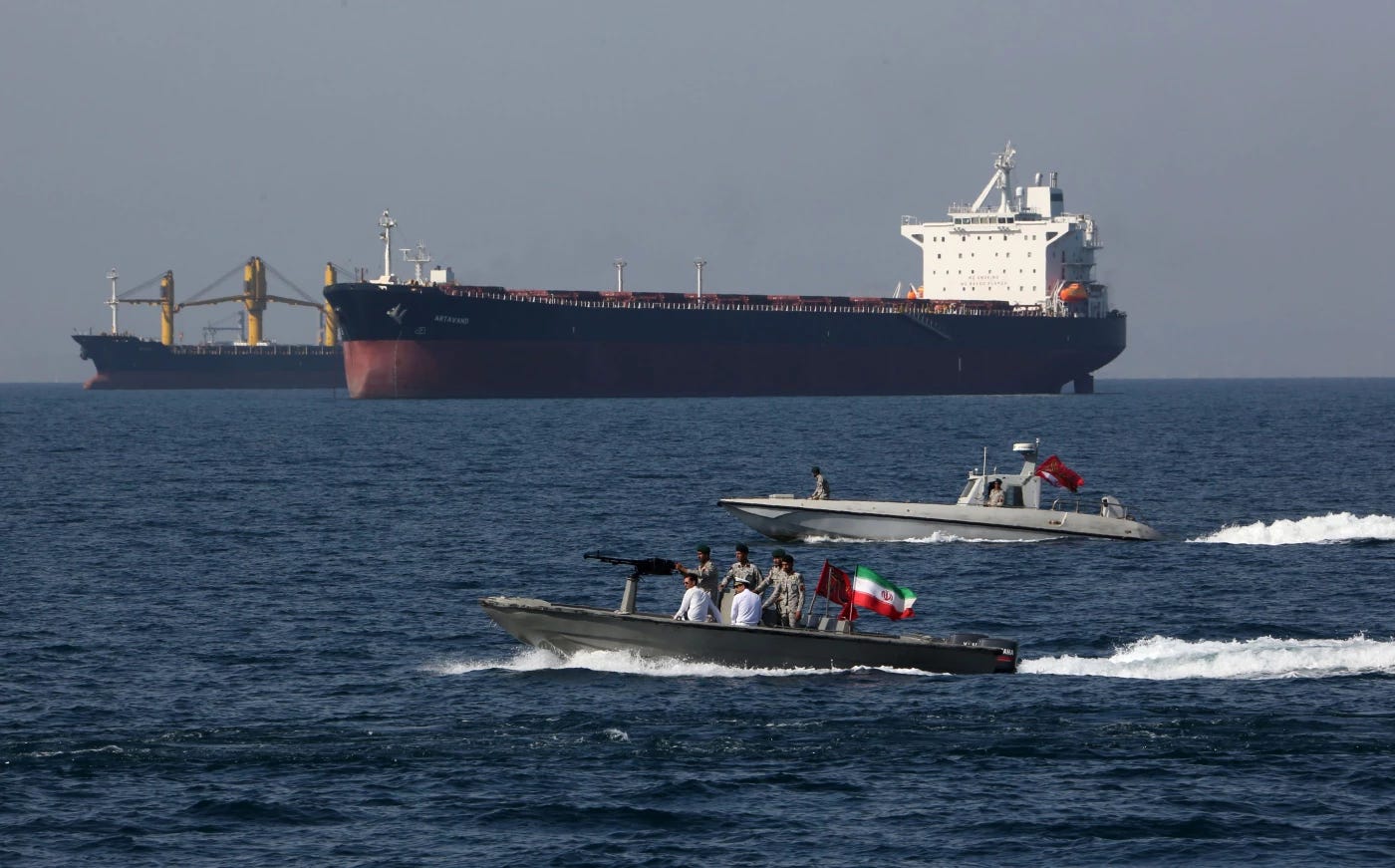Iraq-Syria Oil Talks: Iraq’s Dilemma Amid Potential Hormuz Closure
Baghdad faces an existential dilemma for an oil-dependent rentier state.
On 12 August, Iraqi Prime Minister Mohammed Shia al-Sudani hosted Syrian Energy Minister Mohammad al-Bashir in Baghdad to explore options for bilateral energy cooperation. Following the visit, Baghdad announced it is examining proposals to export oil via Syria’s Baniyas pipeline and Lebanon’s Tripoli pipeline: reviving damaged overland routes as potential alternatives to Gulf maritime transit. The talks reflect mounting anxiety over the Strait of Hormuz, where rising tensions risk closing one of the world’s most critical energy chokepoints. The Strait carries nearly 20% of global oil flows, and Iraq’s southern terminals at Basra depend entirely on its openness. Any disruption would threaten global energy security and destabilise Iraq’s public finances. Yet, both Baniyas and Tripoli remain in disrepair and lack the capacity to absorb Iraqi export volumes, leaving Baghdad exposed to Gulf disruption.
The Syria–Lebanon Alternative
Iraq’s southern ports handle most crude shipments, but reliance on them exposes the economy to concentrated risk. Northern pipelines remain underutilised: the Iraq–Turkey line has been dormant since 2023 amid arbitration disputes with Ankara and the Kurdistan Regional Government over transit rights and revenue-sharing. The Baniyas line has been inactive since 2003. This leaves Baghdad highly vulnerable to maritime interruption, an existential dilemma for an oil-dependent rentier state.
Reviving the Kirkuk–Baniyas pipeline, and potentially linking it to Lebanon’s Tripoli port, represents a return to long-dormant “infrastructure diplomacy.” Both once served as vital conduits for Iraqi crude, but decades of war, sanctions, and neglect have left them unfit for immediate use. Baniyas suffers from limited capacity and sits in conflict-affected territory. Tripoli offers a Mediterranean outlet, but its facilities would require extensive and costly upgrades.
Both Syria and Lebanon also present acute political risks. Damascus remains under Western sanctions, deterring international oil companies and restricting finance. Lebanon’s chronic instability and economic crisis undermine its reliability as a transit state. Any serious rehabilitation would demand not only major capital outlay but also long-term security guarantees and coordination across multiple governments—an ambitious prospect under present regional conditions.
High Hopes, High Price
Iraq’s pursuit of alternative routes underscores how energy security is intertwined with regional power politics and global markets. A closure of the Strait of Hormuz would not only constrain Iraqi exports but also destabilise key Asian importers, including China, Japan, and South Korea—offering Baghdad potential leverage to attract Asian investment in pipeline rehabilitation.
Yet Iraq faces clear limits to its autonomy. Tehran wields significant influence in Baghdad, and any strategy that appears to bypass Iranian regional aims risks backlash. Domestically, disputes with the Kurdistan Regional Government over export rights complicate pipeline diplomacy, highlighting how internal distributional conflicts constrain external options. Access to international capital poses another major constraint. Western sanctions on Syria, investor caution in Lebanon, and Iraq’s own governance risks deter private financing, leaving Baghdad reliant on state-led funding or external partners such as China, whose Belt and Road Initiative offers infrastructure capital but at the cost of deeper geopolitical entanglement.
The projected cost of $7.5–11.5 billion and a best-case timeline of four to six years already stretch Iraq’s fiscal capacity. In practice, geopolitical uncertainty and bureaucratic delays suggest six to eight years, with overruns potentially raising the bill to $12–15 billion. Historical benchmarks—such as the Trans-Arabian Pipeline repairs and Basra port expansion—underscore the technical scale and fiscal risks involved.
Iraq’s drive for export redundancy reflects structural vulnerabilities in its rentier economy and the geopolitical fragility of Gulf transit. While Baniyas and Tripoli offer long-term diversification potential, neither can substitute for Basra in the near term. Without resolving disputes with Turkey, securing external finance, and managing Iranian sensitivities, Baghdad’s options remain limited.



